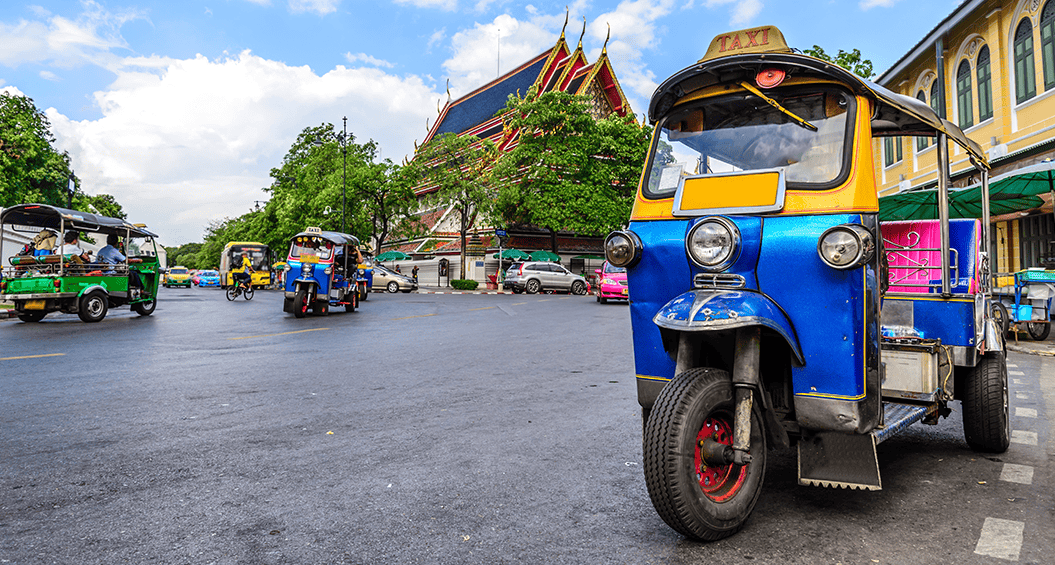Thailand
Thailand culture overview1,2
- Capital: Bangkok
- Population: approx. 65 million
- Official Language: Thai
- Currency: Baht (THB)
- “Land of Smiles” is derived from the fact that Thais seek harmony over social conflict.
- The Thai alphabet is derived from Khmer script, which descended from the Brahmic Indian writing system.
- The King and Royal Family are highly revered, and it’s illegal to insult the monarchy.
- The traditional Thai greeting is known as the wai, which is performed by putting your hands together in a prayer-like grip just below the chin.
Tips on moving to Thailand
What Do You Need to Enter Thailand?3
- Valid Passport
- Visa (https://www.thaievisa.go.th/)
- Thailand Digital Arrival Card (TDAC) – complete 72 bours prior to arrival
- Evidence of sufficient funds: ≥10,000 THB per person or 20,000 THB per family
Customs and Declarations3,4
All passengers entering Thailand are required to declare their belongings. Passengers carrying cash or other means of payment ≥10,000 THB per person or 20,000 THB per family are required to declare to Customs.
Prohibited items:
- Obscene objects/literature/pictures
- Obscene literature and pornographic materials
- Goods with an improper Thai flag design
- Narcotics
- Fake currency, bonds, or coins
- Fake Royal Seals/official seals
- IPR infringing goods e.g. musical tape, CD, VDO, computer software, etc.
- Counterfeit trademark goods
Helpful numbers in case of emergencies in Thailand5
There are several important emergency numbers to know in case you ever experience an emergency or need emergency help:
- Police & Emergency (191)
- Ambulance (1699)
- Fire (199)
Passing Away in Thailand6
The reporting process typically begins at the hospitals and must be reported to the local police or appropriate civil authority within 24 hours. The death of a foreign national must be registered at the district office (Amphur) in the area where the death took place.
The local authorities will issue the death certificate one to three days after reporting the death.
The death should also be reported to the relevant embassy or consulate. They can assist with obtaining a Consular Report of Death Abroad, which is an official document recognized by the deceased’s home government.
The following information is required when reporting a death:
- The deceased's full name, date and place of birth, address
- Required documentation- the deceased’s passport, residence card, death certificate
- The date and place of death
- The cause of death
Repatriating Mortal Remains
The repatriation of a body to the home country requires the help of the relevant local embassy or consulate. Consular officials can assist in organizing repatriation and obtaining appropriate documentation.
When repatriation of the body is requested, funeral homes or crematoriums in Thailand will temporarily hold the remains while arrangements are made.
Repatriation covers transportation and essential documentation, which may include:
- A certified Copy of the Notification of Death
- An embalming certificate (if required by the destination country)
- A certificate confirming the coffin complies with International Air Transport Association (IATA) regulations.

